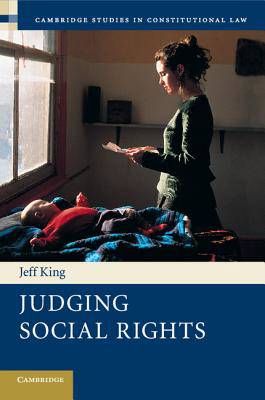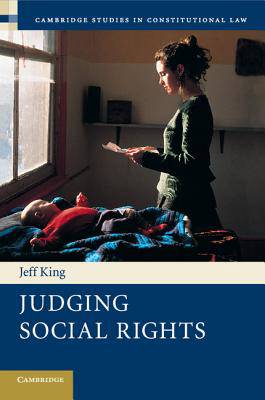
Bedankt voor het vertrouwen het afgelopen jaar! Om jou te bedanken bieden we GRATIS verzending (in België) aan op alles gedurende de hele maand januari.
- Afhalen na 1 uur in een winkel met voorraad
- In januari gratis thuislevering in België
- Ruim aanbod met 7 miljoen producten
Bedankt voor het vertrouwen het afgelopen jaar! Om jou te bedanken bieden we GRATIS verzending (in België) aan op alles gedurende de hele maand januari.
- Afhalen na 1 uur in een winkel met voorraad
- In januari gratis thuislevering in België
- Ruim aanbod met 7 miljoen producten
Zoeken
Omschrijving
Countries that now contemplate constitutional reform often grapple with the question of whether to constitutionalize social rights. This book presents an argument for why, under the right conditions, doing so can be a good way to advance social justice. In making such a case, the author considers the nature of the social minimum, the role of courts among other institutions, the empirical record of judicial impact, and the role of constitutional text. He argues, however, that when enforcing such rights, judges ought to adopt a theory of judicial restraint structured around four principles: democratic legitimacy, polycentricity, expertise and flexibility. These four principles, when taken collectively, commend an incrementalist approach to adjudication. The book combines theoretical, doctrinal, empirical and comparative analysis, and is written to be accessible to lawyers, social scientists, political theorists and human rights advocates.
Specificaties
Betrokkenen
- Auteur(s):
- Uitgeverij:
Inhoud
- Aantal bladzijden:
- 400
- Taal:
- Engels
- Reeks:
- Reeksnummer:
- nr. 3
Eigenschappen
- Productcode (EAN):
- 9781107400320
- Verschijningsdatum:
- 10/05/2012
- Uitvoering:
- Paperback
- Formaat:
- Trade paperback (VS)
- Afmetingen:
- 152 mm x 226 mm
- Gewicht:
- 612 g

Alleen bij Standaard Boekhandel
+ 172 punten op je klantenkaart van Standaard Boekhandel
Beoordelingen
We publiceren alleen reviews die voldoen aan de voorwaarden voor reviews. Bekijk onze voorwaarden voor reviews.









